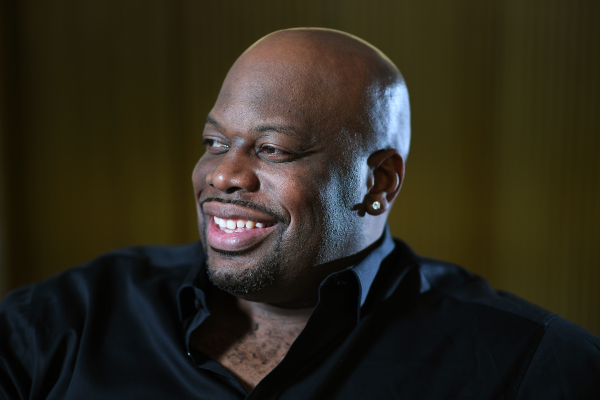Understanding This Man is the Key to Your Success
Have you heard of Morris Robinson? If not, you should look him up.
He’s a graduate of the famed Citadel military school, a two-time All American college football player, and a former regional sales manager of high tech plastics who had a multistate territory and a corporate car.
He’s also a rising star in opera.
What do these things have in common? And, more importantly, what do they have to do with your job search and career success?
Depending on your way of thinking, Morris Robinson is multi-talented, inventive, entrepreneurial, hard-working, and wildly successful. Or he’s a scatter-brained career-jumper who can’t make up his mind and has no ability to “stick it out.”
How you understand Robinson’s career path is partly a reflection of your own attitudes, but also partly a reflection of how Robinson presents himself. If you do a search on Robinson, you’ll find quotes like this one:
"My experience as a football player taught me discipline, fortitude and to endure tough times," Robinson said. "You need that when you're trying to sing an aria over a large orchestra in a foreign language."
Or like this one:
Typically, [opera] students… have been looking toward careers in grand opera since they were very young, steeping themselves in the music and lore, studying with private coaches, learning languages, earning undergraduate and graduate music degrees. Robinson found his quite different preparation applicable: football had required his toughest, hardest working, and most competitive best before large and demanding audiences. “The competition in opera is just less in-your-face,” he says.
Further, “football is 90 percent mental focus and discipline. I was on the offensive line. With all that garbage talk, I’d just smile. You can’t get frustrated. In opera, you have to control your rage, practice one syllable with a director over and over until he’s satisfied.” (http://www.bu.edu/bostonia/summer07/opera/)
What Robinson is doing here is demonstrating what we in the career industry call “transferable skills.” That’s showing how skills you gained in one area directly apply to another area. That’s drawing connections between seemingly unrelated fields to show your target audience (in your case, employers) that “unrelated” experiences are in fact related.
You’ll also find quotes like this:
“Starting at 30, there’s a maturity element that comes into play that allows us to be successful and sustain that level of artistry and keep raising it,” says Robinson, who debuted at no less than the Met. “Had I been 18 and started in conservatory, I probably would have thrown away a lot of the good training or messed up along the way. When you start at a certain age you’re more serious about it and more focused and you have more at risk.” (http://www.straight.com/article-662821/vancouver/giving-voice-grandeur)
What he’s doing here is turning an apparent liability—starting opera later in life—into a career asset. He’s not defensive about apparent liabilities. He’s proactively addressing concerns about his ability and dedication.
And you know what? Demonstrating these transferable skills and proactively addressing concerns helped Robinson realize his career goals by landing him a place—one of only twelve—in a prestigious voice program at Boston University’s Opera Institute. As Sharon Daniels, director of the Opera Institute, recalled:
At his audition, “everyone on the panel was as excited as I was about the voice,” Daniels says, although “there was some concern about how green he was, whether he would be able to come up to the level of his talent.” His football and business lives served him well. “His interview revealed an athlete’s approach to self-improvement: an ability to seek criticism and work until the goal is accomplished,” she says. “His presentation was that of a successful businessman: individual portfolios for each panelist, complete with a mission statement. He demonstrated a willingness to work hard and the humility to learn.” (http://www.bu.edu/bostonia/summer07/opera/)
So look Morris Robinson up. He’s living proof that transferable skills aren’t a slick resume trick, and addressing employer concerns needn’t seem defensive. Instead, they demonstrate a way of thinking of yourself, your abilities, and what you offer.
It’s your responsibility to help would-be employers understand the connections between your various activities, and how your success in one area relates to your ability to be successful in another. Whether you want to be regarded as an innovator or career-jumper is up to you.

